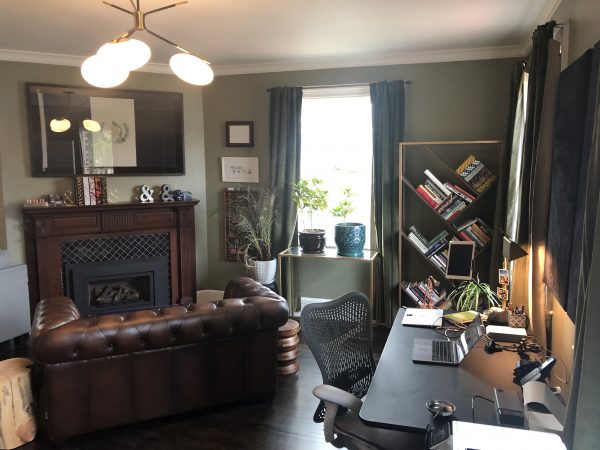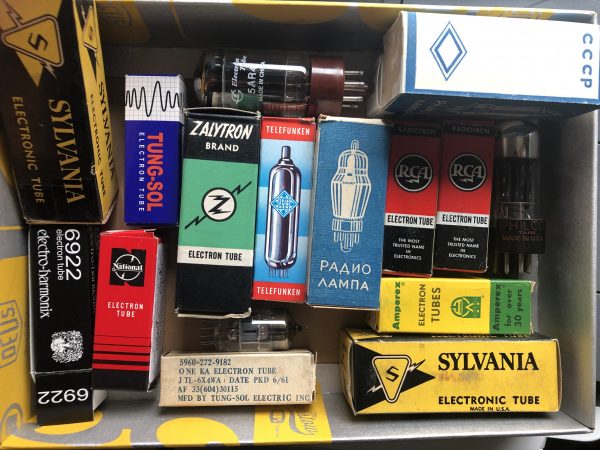Matthew Rechs is a known personality in the type world, notably for his role for the past ten years managing Adobe Fonts, and the library formerly known as TypeKit. If you’ve been in the same room with him, you’ve probably met him, because he’s just one of those people who makes a point of knowing and connecting people in a genuine way. ECS asked him some questions about his strengths, his perspective, and his life in type.
What’s one thing people (either the audience or type makers themselves) should understand about type right at this moment?
Right now in the business world, designers and creative people have more power than they ever have. This is why I started Business Letters after leaving Adobe — to focus on trying to help creative people succeed in business. I’m working with both younger people and more established designers. But to take an example, we have pretty low expectations for the level of sophistication that a freshly-minted young designer would bring into the business world, compared to an engineer. I’d like to help change that.
I sometimes encounter almost pathological levels of low self-confidence in designers who, even if they’re somewhat later in their career and despite being incredibly talented, don’t feel like they’re able to effectively advocate for themselves in business situations. They’ll tell me that they know that they’re getting taken advantage of, but that they just don’t seem to know how to get themselves a better deal. And I’m the kind of person who really hates to see somebody give their work away for much less than it’s worth.
Here’s some great news about this: Have you noticed the trends in our culture and in the business world? Design skills across the board are in incredible demand. They are creating value and building fortunes for corporations and investors everywhere you look. So, creative people are in a stronger position to advocate for themselves than perhaps any other time in history. So, I’m choosing to be on that side.
Here’s more good news: The skills you need to successfully navigate your way in the business world are just that — skills. It’s not talent, it’s not personality, and it’s not how you look, dress, or act. You do not need to be an extrovert to learn how to price and sell your work, structure your business relationships, and manage your clients effectively. They are skills that can be learned, which I know from experience, because I learned them. And they can be taught. I know that from experience, because I’ve taught them.

You just launched Business Letters, a consultancy for designers and businesses. What kinds of things are you translating between these two disparate groups?
Business Letters is focusing on coaching creative people to help them learn the skills they need to succeed in business. This starts with fairly simple ideas, like the basic fact that good business is about creating and nurturing relationships over time. We get into a variety of other skills that require a little study and practice, like structuring contracts and invoices. Some are probably best practiced live in role playing, like negotiation. I also touch on some management skills, like giving and getting feedback and conflict resolution.
I’m also doing consulting for companies looking to engage with the creative markets. Obviously, I have a specialty in the type industry, which is a bit of a mystery to a lot of corporations. That shouldn’t be a surprise to anybody here, since the type industry seems largely to be a mystery to itself. Anyway, I have a lot of experience working with licensed type in a corporate context, so I can very easily help corporations make the world of licensed type quite transparent.
You have a dope sound system in your house. What music do you listen to while you work?
Thank you! Hi-fi stereo gear is a hobby of mine. I collect vintage vacuum tube amplifiers, some going back to the 60s and 70s. I have a bunch of old vacuum tubes made all around the world, going back to the 40s and 50s, many of which I bought for the typography on the boxes. I also have all manner of other hi-fi gear, some of it working, all over the house. A lot of it I bought as design objects, some for the old-school cold war technology.
I understand that some of it also makes music, but when I’m operating this stuff, I am listening to the sound not to the music. I’m joking, sort of. I subscribe to literally all of the digital music services, and I listen to a different one every day. I have a modest vinyl collection. Right now, I am buying every Heart and Eurythmics album I can get my hands on. We listen to a lot of The National and The War on Drugs around here. I like more electronic sounds that the other folks around here — Cut Copy, Phoenix, Daft Punk, and LCD Soundsystem. I really liked Janel Monae’s Dirty Computer.

How much time do you allow yourself to just think?
What do you mean “just?” All I do is think! The problem is that I’m inconsolably miserable without a project, and two would really be better. These days, while I am waiting for clients to start beating my door down, I am writing for two or three hours a day. That’s a project I’m not ready to tell you about quite yet. Ask me in a couple of months.
Tell us a little about your type tattoos. Whose ampersands are those?
I have 14 as of yesterday. Sometimes I fall in love with the glyph, and I just want it with me all the time. Who doesn’t feel that way about the House Industries amp? Sometimes I pick a designer or publisher and the glyph is sort of an afterthought. I think Laura Worthington made a little sound when she saw that I’d tattooed her bacon font on my arm, out of everything in her oeuvre. But Laura knows that I love her at least as much as I love bacon. Anyway, she does now.
Wife, kid, other kid on fingers, Source Code by Paul Hunt/Adobe
Ampersands:
- Illustration / House Industries
- Thomas & Ruhiler by Aleš Najbrt / Briefcase Type
- Garamond Premier Pro Display by Robert Slimbach/Adobe
- Hobeaux Rococeaux by James Edmondson/OH no Type Company
- Sutro / James Parkinson
- Charcuterie / Laura Worthington
- Missionary / Miles Newlyn / Emigre
- Egra Tiflex (unreleased) / Alice Savoie
- Modesto Open / Jim Parkinson
- Illustration / Martina Flor
- Saltpetre / Jess McCarty